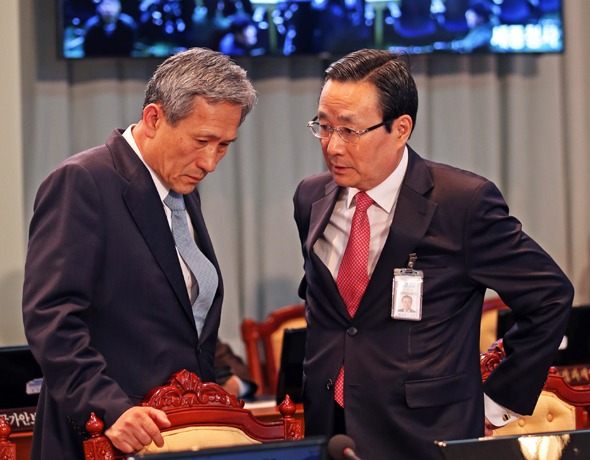딕 더빈 미 상원의원, 세월호 철저 조사 서한 발송하기로
딕 더빈 미 상원의원, 세월호 철저 조사 서한 발송하기로
-세월호 희생자 부모들과 시카고 사무실에서 만나
-침묵하는 한국 국회 의원과 대조적
일리노이 딕 더빈 연방상원의원이 16일 ‘주제: 상원의원 더빈, 세월호 희생자 부모들을 만나다’라는 제목의 세월호 관련 보도자료를 냈다.
딕 더빈 의원은 세월호 희생자 가족 박혜영, 홍영미씨와 찍은 사진을 첨부하고, 세월호 사건의 철저한 조사를 요구하는 서한을 안호영 한국 대사에게 보낼 것이라고 발표했다.
지난주 고든 존슨 미 하원의원이 세월호 가족들에게 지지 영상을 보낸 데 이어, 딕 더빈 상원의원의 철저한 조사를 요구하는 서한 발송 계획으로 세월호 인양과 조사에 대한 국제 사회의 목소리는 더 커질 전망이다.
다음은 뉴스프로가 번역한 보도자료 전문이다.
-세월호 희생자 부모들과 시카고 사무실에서 만나
-침묵하는 한국 국회 의원과 대조적
일리노이 딕 더빈 연방상원의원이 16일 ‘주제: 상원의원 더빈, 세월호 희생자 부모들을 만나다’라는 제목의 세월호 관련 보도자료를 냈다.
딕 더빈 의원은 세월호 희생자 가족 박혜영, 홍영미씨와 찍은 사진을 첨부하고, 세월호 사건의 철저한 조사를 요구하는 서한을 안호영 한국 대사에게 보낼 것이라고 발표했다.
지난주 고든 존슨 미 하원의원이 세월호 가족들에게 지지 영상을 보낸 데 이어, 딕 더빈 상원의원의 철저한 조사를 요구하는 서한 발송 계획으로 세월호 인양과 조사에 대한 국제 사회의 목소리는 더 커질 전망이다.
다음은 뉴스프로가 번역한 보도자료 전문이다.
번역 감수: 임옥
Subject: SENATOR DURBIN MEETS WITH PARENTS OF SEWOL FERRY VICTIMS
주제: 상원의원 더빈, 세월호 희생자 부모들을 만나다
Date: Mon, 16 Mar 2015 23:51:45 +0000
Photo attached. Caption below:
첨부사진: 설명 아래 참조
U.S. Senator Dick Durbin (D-IL) met today in his Chicago office with parents of two victims of the April 16, 2014 Sewol ferry disaster in South Korea that claimed more than 300 lives. Durbin announced that he will be sending a letter to the Ambassador of the Republic of Korea, Ahn Ho-Young, asking for a thorough investigation of the incident. The parents—Ms. Hye Young Park and Ms. Young Mi Hong—are touring the United States to share their story as the first anniversary of the disaster approaches. Senator Durbin was presented with a plaque in appreciation of his efforts.
미 상원의원 딕 더빈(민주당-일리노이 주)은 한국에서 300명 이상의 목숨을 앗아간 2014년 4월 16일 세월호 참사의 두 희생자의 부모들을 시카고에 있는 자신의 사무실에서 오늘 만났다. 더빈 상원의원은 세월호 사건의 철저한 조사를 요구하는 서한을 안호영 한국 대사에게 보낼 것이라고 발표했다. 두 희생자의 부모인 박혜영, 홍영미씨는 세월호 참사 1주년을 앞두고 자신들의 이야기를 공유하기 위해 미국 순회 중에 있다. 더빈 상원의원은 그 노력에 대해 감사패를 받았다.






